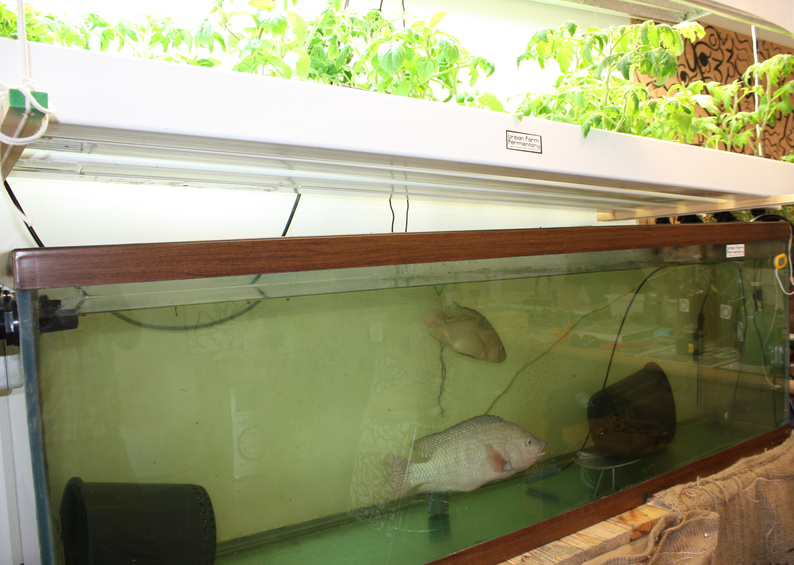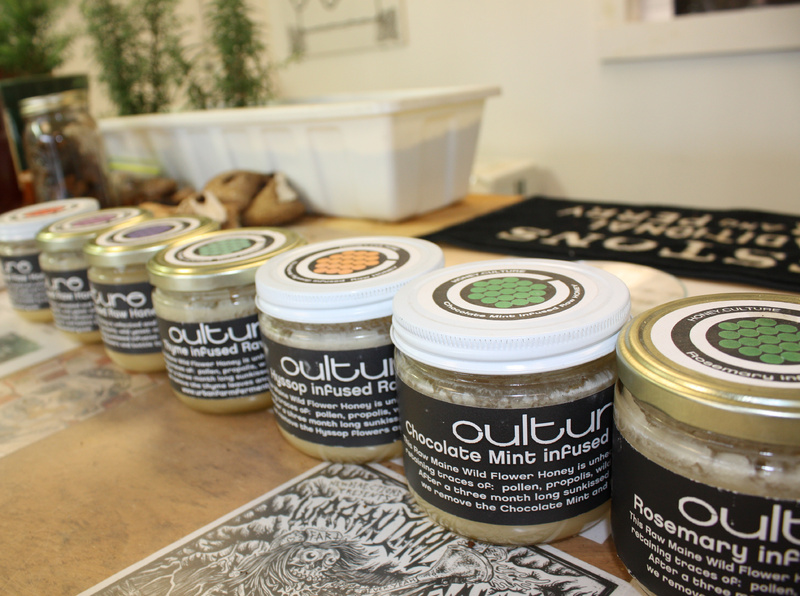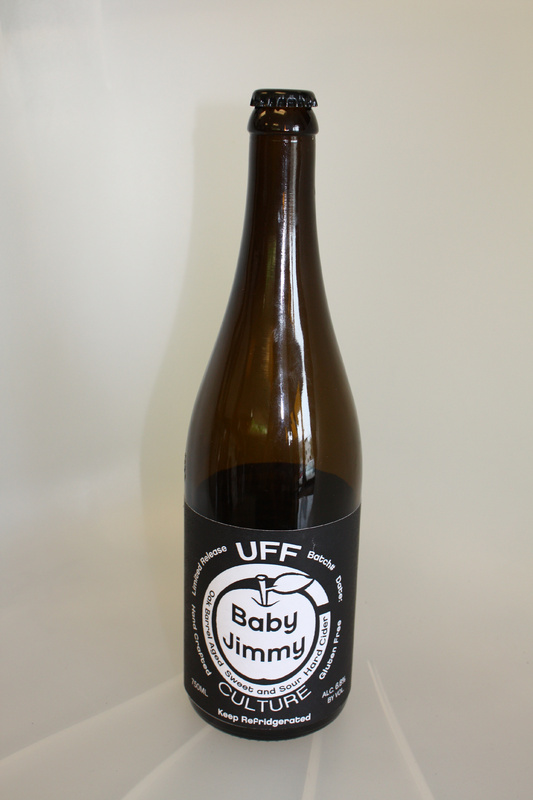Under the glow of special lights, tomato plants and basil grow fast and lush. This unusual indoor garden sits atop two fish tanks where six freshwater tilapia swim, and the nutrient-rich water from the tanks is circulated through the hydroponic system feeding the plants’ roots.
This is the newest project at the Urban Farm Fermentory in Portland, which has grown considerably since I wrote about the budding business last July.
Right now, the focus of the tilapia project is on breeding the fish, which so far have produced more than 200 fry.
Once the weather warms up, the operation will be expanded and moved out back, where an innovative urban garden built over an old rail spur is beginning to come back to life.
“In the summer, all our plants will be grown off the fish waste,” said Eli Cayer, who runs the business with David Homa. “We’re looking for restaurants who want to partner with us.”
In addition to providing fertilizer for the garden, Cayer and Homa intend to sell the fish for food. What they’d like to do is find eateries that want fish and a fish tank, which could be replenished as the tilapia are consumed.
Such an arrangement will save the UFF from building a processing facility, and will allow diners to eat fish so fresh that is was plucked from the water only moments before it was cooked.
Not only are the fish being locally produced, because the water and solids will be used as fertilizer, the operation avoids the water pollution pitfalls of fish farms situated in the ocean or freshwater bodies.
However, as Cayer points out, the tilapia project “is a very small piece of everything we’re doing.”
Around town, the company has become known for its UFF Culture brand hard cider that is served on tap at restaurants and bars including Novare Res, Empire Dine and Dance, Port City Music Hall and the Pepperclub. It comes in two varieties: Homa, which is infused with hops, and Baby Jimmy, which is aged in old Jim Beam barrels.
By the end of the month, a very limited run of 1,500 bottles of Baby Jimmy will show up on store shelves. The bottles will retail for $13 or $14.
Summer will bring the UFF’s first meads to market. These will include seasonal varieties and special herb-infused blends.
“We’re also looking into contract fermentation,” Cayer said. “We have a mead maker and a cider maker we’re talking with.”
Another product coming out of the UFF is its line of herb-infused raw honey. Varieties include hyssop, lavender, thyme and rosemary.
“The honey has been taking off,” Cayer said. “We went down to the (New England Food Show in Boston), and people were flipping out over our honey.”
Such strong demand means that supply is running low, but Cayer said they plan to crank up production this season. The UFF also is selling raw Maine varietal honeys, such as blueberry blossom and cranberry blossom. The infused honeys sell for $12 to $15 each, and the varietal honeys sell for $7 to $9 each.
In February, the UFF hosted a weeklong series of events focused on foraging for and growing mushrooms. Interest in the program was so strong that many had to be turned away for lack of space.
During the event, mushroom expert David Spahr showed the group how to grow oyster mushrooms in a medium of straw and coffee grounds. When the event wrapped up, the UFF was left with a number of these inoculated cultures, and intends to sell the mushrooms this summer.
Other products Cayer and Homa may offer in the future include unpasteurized apple cider vinegar and herbal teas mixed with wild-harvested chaga mushrooms.
Come summer, the UFF is planning to host a farmers market of sorts on Sundays at its location on Anderson Street, and will rent a day table at the Wednesday farmers market in Monument Square.
And Cayer and Homa are always on the lookout for new ideas to explore and new people to partner with.
The tilapia project is an example of the ear-to-the-ground nature of the business. One night while Cayer was serving the UFF’s hard cider at an event, he met and began chatting with marine biologist Tyler Gaudet. As a result of that chance meeting, Gaudet, who has a license to farm tilapia, transferred the paperwork to the UFF’s location and is heading up the project.
“A little piece pops out of the community, and if it fits the Ferm mold, we plug it in,” Cayer said. “Who knows who we’re going to run into next. We’re open to it.”
Staff Writer Avery Yale Kamila can be contacted at 791-6297 or at: akamila@pressherald.com
Follow her on Twitter at: Twitter.com/AveryYaleKamila
Send questions/comments to the editors.





Success. Please wait for the page to reload. If the page does not reload within 5 seconds, please refresh the page.
Enter your email and password to access comments.
Hi, to comment on stories you must . This profile is in addition to your subscription and website login.
Already have a commenting profile? .
Invalid username/password.
Please check your email to confirm and complete your registration.
Only subscribers are eligible to post comments. Please subscribe or login first for digital access. Here’s why.
Use the form below to reset your password. When you've submitted your account email, we will send an email with a reset code.